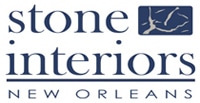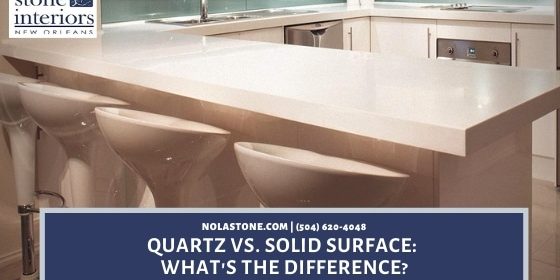Quartz and solid surface are both man-made materials: quartz is 80% quartz crystals with resins mixed in, and solid surface is made entirely of resins.
While solid surface tends to be less expensive, quartz is the preferable alternative for any busy kitchen, for several reasons.
-
Quartz is more scratch-resistant. Solid surface materials can develop deep scratches that are unsightly, and can also collect liquid and dirt.
-
Quartz tends to have a glossy, reflective finish. It more closely resembles natural stones like granite or marble, while still being relatively uniform in coloration. These days, quartz brands are highly skilled at engineering their product to closely resemble more expensive materials. Solid surface typically has a dull, flat finish.
-
Quartz is growing in popularity. Especially over the last two years, quartz has become increasingly popular for both kitchens and bathrooms thanks to both its look and durability.
What is Corian Quartz?
Corian was one of the first solid surface brands. When people refer to “Corian,” they’re typically thinking of the solid surface material that was popular in the 80’s.
Now, DuPont is a major producer of Corian quartz – much different from their original material called Corian that came on the scene decades ago. The material that is now Corian Quartz was formerly known as Zodiaq quartz.
Confused yet? All you really need to know is that today’s Corian Quartz is much different from the solid surface product that used to be referred to as Corian back when Def Leppard was on the radio. Corian Quartz is more durable and scratch-resistant.
Which is better: Corian Quartz or solid surface?
By most standards, you’re better off with any brand of quartz than you are with solid surface, simply because it’s more durable and more likely to resemble the look of stone. Whether you choose between Corian and any other quartz brand is up to you. But even if it costs slightly more, a quartz product is likely to look just as beautiful years later as the day it was installed.








